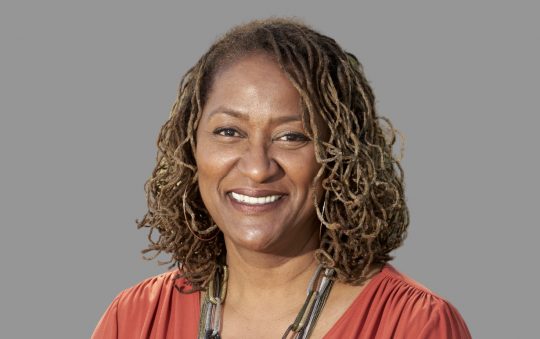Pelosi Draws on Majority Whip’s Legacy of Leadership in Challenging Times

U.S. Congressman James Clyburn will direct the bipartisan oversight of the federal response to the COVID-19 crisis. (Morgan Butler)
House Speaker Nancy Pelosi tapped Majority Whip James E. Clyburn to head the House Select Committee on the Coronavirus Crisis.
During her announcement on April 2, Pelosi said Clyburn would chair the bipartisan oversight panel to ensure that the $2 trillion in emergency relief that Congress passed is “spent carefully and effectively.”
It’s a huge responsibility, but based on his background, Clyburn is more than qualified to handle the role. A 14th-term congressman, he represents the 6th Congressional District of South Carolina, which includes largely Black areas in and around Charleston and Columbia as well as rural areas in the state.
Clyburn also holds the distinction of being a two-time House Majority whip. A whip is considered a political party’s enforcer, ensuring that members of the party vote according to the party platform, rather than according to their own individual ideology or the will of their constituents. Previously, Clyburn served in the position from 2007 to 2011 and was also the House Assistant Minority Leader from 2011 to 2019.

But, since being elected to the U.S. House of Representatives in 1993, he has built a strong record of fighting for not only his constituents, but also addressing the concerns of African Americans and underserved populations throughout the nation. For example, his introduction of the Access for All Americans Act in 2009, aimed to quadruple the funding to U.S. community health centers that offered medical care to uninsured and low-income residents.
In the area of education, he has consistently voted for new and additional funding along with more Pell Grant monies and lower interest rates on federal student loans. The labor movement has enjoyed similar backing from Clyburn, who frequently advocates for minimum wage increases and restrictions of employer interference with labor union organizations.
Even one day before his latest appointment was announced, Clyburn was working with Pelosi and other House leaders on his infrastructure priorities for the Phase 4 coronavirus legislative response package to supplement the three relief packages passed last month to address the economic fallout from the pandemic. Clyburn’s priorities include expanded Internet access and health care funding.

“During this pandemic, it has been made abundantly clear that far too many Americans do not have access to and cannot afford some of the basic needs of a 21st century civil society: health care and the internet,” said Clyburn in a press statement.
“As social distancing has become a required way of life, remote learning, teleworking, and telehealth all require access to a reliable internet, which many Americans still do not have. I am gravely concerned that things are going to get a lot worse in rural areas and low-income communities that are especially educationally disconnected and medically underserved,” he insisted.
Some of his proposals that Clyburn highlighted in the legislation were bringing “affordable high-quality Internet to every American household, $10 billion for the construction and capital improvements of community health centers,” and the incorporation of the “Dig Once” principle “so that when we build roads, we can take advantage of that opportunity to lay fiber.”
Clyburn’s legacy of leadership was likely a factor in Pelosi assigning him as chair of the House Select Committee on the Coronavirus Crisis. Knowing Clyburn’s commitment to the underserved, Pelosi said that the priority of Congress was “to make sure the money gets to those working families, struggling to pay rent and put food on the table, who need it most.”

Giving an overview of the committee’s responsibilities, Pelosi noted, “The panel will root out waste, fraud, and abuse. It will protect against price gouging, profiteering, and political favoritism. The committee will be empowered to examine all aspects of the federal response to coronavirus and to assure that the taxpayers’ dollars are being wisely and efficiently spent to save lives, deliver relief, and benefit our economy.”
Taking on the challenge of chairmanship, Clyburn responded that he was ready to “direct our bipartisan oversight of the federal response to the COVID-19 crisis.” But contrary to the thoughts of some observers, he added that the concentration would be “forward looking,” as opposed to investigating the actions that led up to the crisis.
“This is about focusing on how the money is spent, whether or not the people who are getting the money are actually working on behalf of the American people or whether or not they are profiteering,” said Clyburn on CNN’s “State of the Union” on April 5.
Commenting to The Hill newspaper later that day, he said, “The American people are now out of work, millions of them out of work; the question is whether or not the money appropriated will go to support them and their families or whether or not the money will end up in the pockets of a few profiteers.”







